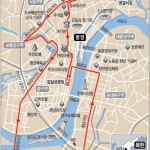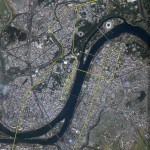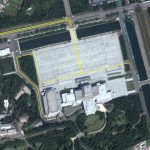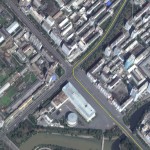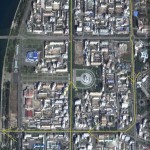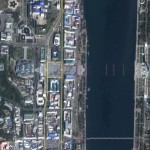Lankov writes in the Korea Times:
This year, President Lee Myung-bak’s New Year address paid much attention to North Korea issues. The South Korean President warned the North against fresh provocations but the general tone of his speech was conciliatory.
Lee said that now is the time to put aside past problems and start to rebuild relations anew. Tellingly, he did not repeat that Seoul expects Pyongyang to apologize for the two military incidents of 2010 ― the sinking of the Cheonan and the shelling of Yeongpyeong Island.
Are there chances that Pyongyang will react to this charm offensive and rush to resume talks with Seoul? Don’t hold your breath ― such chances are very remote. Pyongyang decision makers understand perfectly well that an immediate detente is not in their long-term interests.
Pyongyang’s foreign policy goals are surprisingly easy to describe: They are regime security and obtaining unconditional aid (the former is an absolute priority with the latter a rather distant but still significant second). In other words, North Korea’s foreign policy makers want to squeeze as much aid as possible from the outside world but only so long as this aid comes without too many conditions which might have impact on regime security.
Since 2008, the North Korean state has found itself in a rather unpleasant situation: U.S. aid stopped almost completely while the amount coming from South Korea has dramatically decreased. In this new situation, North Korea has been left with just one aid provider ― that is, China. This is not a situation that Pyongyang’s elite is happy about.
Since the 1960s, North Korean diplomats have worked hard to ensure that their country would always have at last two overseas sponsors. It was preferable if the two sponsors had uneasy, if not hostile, relations, so that their rivalry could be used to ensure that only limited concessions would be given in exchange for aid.
For the early 1960s until the late 1980s, China and the Soviet Union were the sponsors. From the early 1990s, the Chinese continued and the Soviet Union was replaced by South Korea and the United States.
In order to decrease their dangerously high dependence on China, North Korean diplomats now want South Korea to resume large-scale aid ― in other words, to re-implement a version of the “Sunshine Policy,” the North Korean-directed policy of Kim Dae-jung and Roh Moo-hyun when they were president in 1998-2007.
North Korean leaders are careful observers of the ever-changing South Korean political scene. They have to be, since milking the South has long since become their major source of revenue. They hope that the coming parliamentary and presidential elections will be won by the Korean nationalist left.
This is understandable, since left-leaning politicians in South Korea have always been more willing to provide the North with aid, without asking too many awkward questions. In recent years, it seems that the left has lost part of its earlier enthusiasm for such a policy, but one should still reasonably expect that a left-leaning (or as it would proudly style itself, “progressive”) administration will indeed be more receptive to Pyongyang’s demands.
So what should North Korea do to increase the chances of the South Korean left-leaning parties? Pretty much the only thing they can do is to “not” help the right, and this is exactly the reason why the recent conciliatory remarks by President Lee are likely to fall on deaf ears.
While the North Korea issue is marginal in South Korean politics, the left-leaning opposition can blame the Lee administration for its real (or alleged) mishandling of the North and the resulting instability on the Korean Peninsula (admittedly, this type of electoral rhetoric has a kernel of truth to it). Therefore, if the North agrees to play according to Lee’s rules, it will help the South Korean “conservatives” in presenting themselves as people who, at the end of the day, know how to maintain stability on the Korean Peninsula.
Of course North Korea would be rewarded if it were to talk right now. But from Pyongyang’s point of view it makes a great deal of sense to wait another year, in anticipation of the electoral success of the South Korean left. If the left is not successful in the end, then they can still easily make a deal with the next right-leaning administration. It is telling that in recent months the presidential contenders of the right have also indicated that they would be softer in their approach towards the North.
Therefore we should not expect a dramatic diplomatic breakthrough anytime soon. Fortunately though, we also do not have to be that afraid of fresh North Korean provocations. Consideration of South Korean electoral politics will probably mean that the North will try to avoid clashes with the South.
Read the full story here:
N. Korea’s political calculations
Korea Times
Andrei Lankov
2012-1-15

